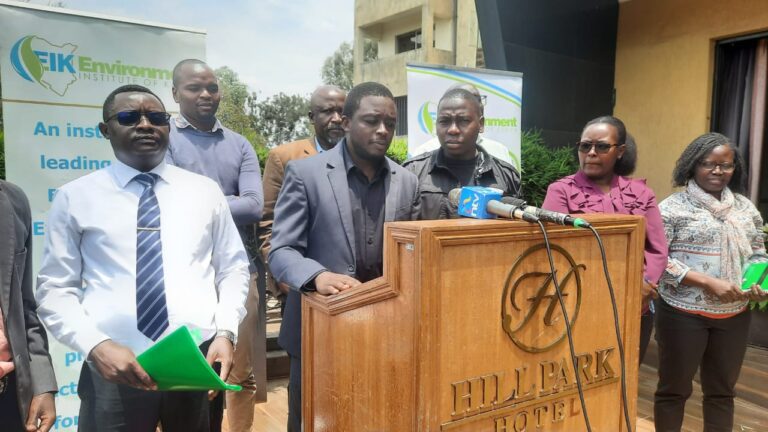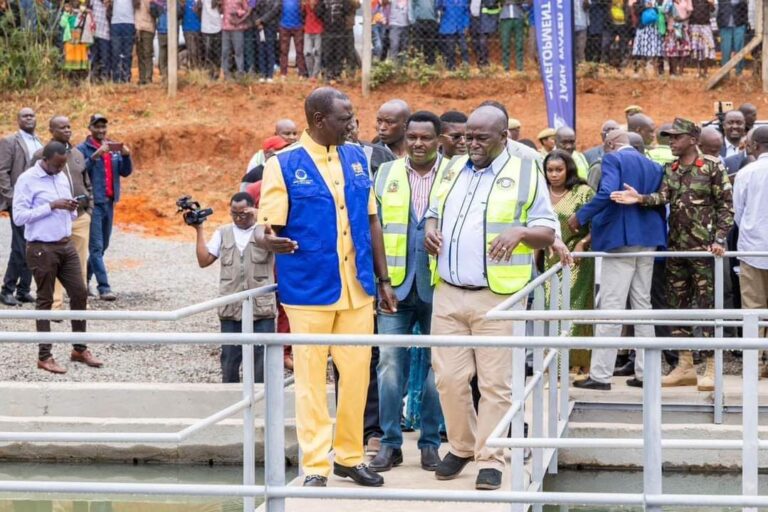
African Leaders attending the second Africa Climate Summit in Addis Ababa. Photo/Courtesy
By Daisy Okiring
The African Union (AU) has renewed its call for wealthy nations to commit at least $50 billion annually to help the continent cope with worsening climate change impacts. The appeal came on Monday as African leaders gathered in Addis Ababa for the second Africa Climate Summit, a forum aimed at driving collective solutions to one of the continent’s most pressing challenges.
In his opening remarks, AU Commission Chairperson Mahmoud Ali Youssouf painted a stark picture of the mounting crises linked to climate shocks, including prolonged droughts, devastating floods, and growing food insecurity. He warned that without significant support, climate change would continue undermining Africa’s fragile development gains, while fueling forced migration and instability.
“Today, the link between climate and underdevelopment is no longer in doubt,” Youssouf said. “Climate shocks, rural exodus, migration, and instability in all its forms are intertwined. The vulnerability of our member countries must be redressed through climate justice and genuine cooperation.”
The Addis Ababa summit builds on the 2022 Nairobi Declaration, which similarly demanded increased climate funding but failed to yield tangible commitments. This year, African leaders are emphasizing the urgency of closing the continent’s climate finance gap and ensuring that adaptation plans are matched with real financial resources, technology transfers, and technical expertise.
Widening climate finance gap leaves Africa exposed
A recent report by Oxfam and the Intergovernmental Authority on Development (IGAD) underscores the severity of the shortfall. Between 2013 and 2022, the bloc’s eight member states received an average of just $1.7 billion per year in climate finance—only four percent of the amount required to implement their climate action strategies.
The World Meteorological Organisation (WMO) has also raised alarms over the economic toll of climate extremes. Each year, African countries lose between two and five percent of their GDP to climate-related disasters. Some governments are forced to allocate up to nine percent of their national budgets to emergency responses, diverting critical funds away from development projects.
Read More: The hunger paradox: Why africa feeds the world but can’t feed itself
In sub-Saharan Africa alone, the cost of adapting to climate change is projected to reach between $30 billion and $50 billion annually over the next decade. Yet, wealthy nations have fallen far short of previous commitments, including the much-discussed $100 billion global climate finance pledge made under the Paris Agreement.
For Africa, the lack of funding translates directly into heightened vulnerability. Farmers face collapsing harvests, urban populations endure worsening heatwaves and flooding, and coastal communities risk losing their homes and livelihoods to rising sea levels.
Africa links climate justice to global cooperation
African leaders argue that the burden of climate change must be shared more equitably, stressing that the continent contributes less than four percent of global greenhouse gas emissions but bears the brunt of their consequences.
Mahmoud Ali Youssouf urged industrialized nations to honor their obligations, not as acts of charity but as a matter of justice and shared responsibility. “Our adaptation plans cannot be implemented without new and additional investments,” he said. “We need resources, technology, and expertise to build resilience and protect our people.”
The three-day summit will also examine opportunities for intra-African cooperation, including joint investments in renewable energy, climate-smart agriculture, and early warning systems. Ethiopia and Nigeria have already submitted rival bids to host the 2027 UN climate summit, underscoring the continent’s rising profile in global climate diplomacy.
Read More: COP fatigue: Why Africa must lead its own climate agenda
As discussions continue, African negotiators hope to present a unified front ahead of the upcoming UN COP talks, where climate finance is expected to dominate the agenda. For the AU, the demand is clear: wealthy nations must commit to at least $50 billion a year if Africa is to withstand the storms, droughts, and disruptions of an increasingly unstable climate.



